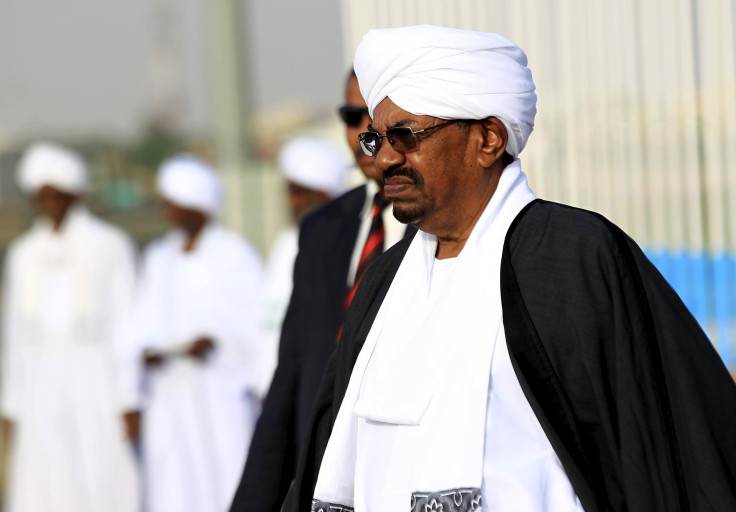Omar Al-Bashir China Visit 2015: Despite ICC Warrant, Sudanese President Returns Amid Turmoil Over Economic, Military Ties

Sudanese President Omar Hassan al-Bashir began a four-day visit to China Monday, despite court orders against his travel and a warrant for his arrest issued by the International Criminal Court. His visit comes on the heels of a Chinese stock market downturn that could spell greater troubles for Sudan's already unstable economic and political situation.
The ICC's indictment of Bashir was a ploy by Europe, Sudanese foreign minister Ibrahim Ghandour told Voice of America Sunday, and the rest of the international community rejected the calls for his arrest. In 2010, the ICC indicted Bashir on charges of genocide, war crimes and crimes against humanity following conflict in Darfur, Sudan.
Ghandour said China had invited Bashir to visit this month and that during the visit the president would discuss bilateral relations and meet expatriate Sudanese living in China as well as Chinese businessmen with investments in Sudan. “Sudan is on the list of the top countries in Africa that are economically dealing with China," Ghandour said. "China supported Sudan in its very dark days when Sudan was let down by the U.S., including extracting Sudanese oil. China helps Sudan in oil refinery and other economic issues," he added.
#Sudan's #OmaralBashir expected to travel to China for 4day visit,defying international warrant for his arrest pic.twitter.com/OS6ObWxV40
— Africa24 Media (@a24media) August 31, 2015But as record declines in the Chinese stock market last week sparked fears of a broader Chinese economic downturn, some experts have said that the flow of cash and weapons into Sudan from China, in exchange for the African country's vast reserves of oil, could slow -- to Sudan's detriment.
“The Sudanese economy is crumbling with or without Chinese support,” Eric Reeves, a Sudan researcher and analyst at Smith College in Massachusetts, told International Business Times Wednesday. Bashir has held power in Sudan for 25 years. Forces with his government are currently facing an active insurgency in two regions and have been accused of deliberately killing and raping civilians. In Sudan, an estimated 6.9 million people need humanitarian assistance, and millions have been internally displaced.
The vast majority of weapons that Sudanese forces use come from China in exchange for oil. But that could change if Beijing reconsiders how it distributes foreign spending and support in the face of recent economic concerns.
Ghandour nevertheless suggested that Chinese-Sudanese relations remained rosy.
"Right now, China and Sudan are actually having excellent relations, and this is how Sudan and President Bashir have been invited to China,” Ghandour said.
© Copyright IBTimes 2024. All rights reserved.






















